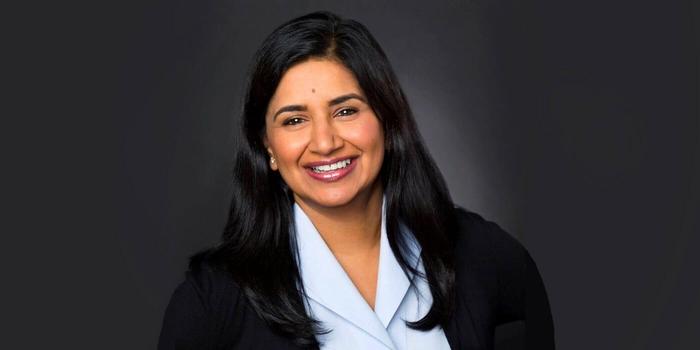
Sundari Mitra first joined Intel as a design engineer fresh out of college. Exactly 20 years later—after time spent at other organizations and launching (and selling) her own company—Mitra found her way back to where her career began. Her reason for jumping at the opportunity? “Intel’s reach, scale, and resources allow me to be at the forefront of reimagining how people and data can change our world for the better,” she says.
While many people might be overwhelmed by such big, ambitious goals, they excite Mitra—and she credits her mom with inspiring her to aim high as a young kid. “Her encouragement and determination showed me that I could do more than one thing in my life,” she says.
Mitra is certainly putting her mother’s encouragement to good use at Intel, where she’s the Corporate Vice President and General Manager of the company’s IP Engineering Group. In this role, she is leading ambitious IP R&D initiatives, with her sights on helping to solve massive global problems.
Here, Mitra opens up about how data has the power to change the world, the upside of entrepreneurship, and why curiosity is a career superpower.
You began your career at Intel as a design engineer and returned two decades later as a VP. What about the company made you want to come back?
Intel is a company with a clear purpose. We create world-changing technology that enriches the lives of every person on Earth. That’s exciting! Our technology is helping to make roads safer, combat climate change, and make healthcare more accessible.
Also, Intel’s culture has evolved during the last few years. It is an inclusive culture that fosters risk-taking to continually evolve ourselves and our portfolio to meet our customers’ needs.
What role does data play in the work you do?
Data has emerged as a transformational force at a time when an explosion of devices permeates all of our interactions. Everything—our homes, our cars, our cities, and our hospitals—now looks like a computer, and it’s all generating staggering volumes of data. Retail stores and manufacturing plants are also becoming factories of data. But data only has value when it can be turned into actionable insights. Being part of an organization like Intel, which can leverage these opportunities and drive actionable insights, allows me to contribute to the way people solve the world’s biggest challenges.
What’s one of the near-future technological advancements you’re most excited about?
Data growth is intimately linked to three tech inflections occurring today: AI, 5G’s transformation of the network, and the rise of the intelligent edge.
In this new era, success will be measured by how well actionable data-based insights are brought to critical moments of human need. But to fully unleash the potential of data, it must be moved, stored, and processed faster and more securely than ever before. At Intel, our ambition is to be the trusted performance leader.
To bring this back to my own role, the IPs we develop are the foundational building blocks of driving performance. And I’m excited to transform the way we are developing this building block to provide Intel with a competitive advantage.
What lessons did you learn from running your own companies, and how do you apply them in your current leadership role?
To be an entrepreneur, you need to be a dreamer. Entrepreneurship requires that you never give up. You learn to be nimble and to move fast while delivering the highest quality products. I try to bring those same skills to the leadership team at Intel.
What is Intel’s approach to diversity and inclusion, and how have you gotten involved?
I am proud of the RISE 2030 goals that Intel has established. Starting from the CEO and at all levels of the organizations—including me as one of the key leaders—we all play a critical role in making Intel a great place to work for everyone. I was part of the team that established the diversity hiring goals through 2030, and I continue to mentor others, particularly women in technology and technology entrepreneurs.
What career advice would you offer people, particularly women, who want to pursue a career in engineering?
I always give these messages to everyone I mentor: Be confident. As a woman, you are naturally passionate. Don’t hide it; channel that passion and show how you can be so much more effective in what you do. Stay curious. The more curious you are, the more you learn. And the more you learn, the better you get. And finally, learn to solicit feedback, be gracious about accepting it, and act on that feedback.